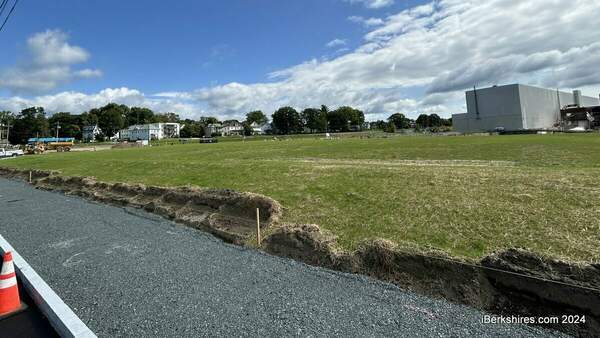BOSTON — Adams and Great Barrington will receive American Rescue Plan Act (ARPA) funds to go towards wastewater treatment plant improvement projects.
State Treasurer Deborah Goldberg, Chair of the Massachusetts Clean Water Trust (the Trust), announced that $66.8 million in American Rescue Plan Act (ARPA) will be provided as grants to 52 projects in communities across the Commonwealth.
In Berkshire County:
Adams will receive $378,713 in ARPA loan forgiveness and $499,901 in disadvantaged community loan forgiveness towards wastewater treatment facility capital improvements.
Great Barrington will receive $300,300 in ARPA loan forgiveness and $132,132 in disadvantaged community loan forgiveness towards their wastewater pump station upgrades Project.
The grants are one portion of a $661.7 million subsidy providing water infrastructure projects. Most projects will take place in disadvantaged communities rendering over $535 million of project costs eligible for additional loan forgiveness.
"The grants we are receiving from the federal ARPA legislation support vital water infrastructure projects throughout the state," said State Treasurer Deborah B. Goldberg. "This investment furthers our commitment to ensuring the health and safety of all Massachusetts residents by providing access to clean drinking water in even more communities this year."
In December 2021, the Baker-Polito Administration and the Massachusetts Legislature approved $100 million in ARPA funding to the Trust as grants for water infrastructure projects.
"The Baker-Polito Administration is pleased to partner with the Massachusetts Clean Water Trust to ensure that the financial investments being made by the federal government and the Commonwealth result in cost-effective projects that improve water quality, public health and the environment in communities across Massachusetts," said Commissioner Martin Suuberg of the Massachusetts Department of Environmental Protection (MassDEP).
The ARPA funds are expected to be spent quickly with funded projects moving towards construction in the spring or summer of 2022. The remaining ARPA funds will be spent similarly for projects targeting construction in 2023.
Chaired by Treasurer and Receiver General Deborah B. Goldberg, the Massachusetts Clean Water Trust is a state agency that improves water quality throughout the Commonwealth by providing low-interest loans to municipalities and other eligible entities.
Communities receiving these grants experience a total reduction in project costs which frees up capital for other local needs. The loans pay for water projects such as upgrades to water treatment facilities, stormwater and nutrient mitigation, and sewer improvement projects. Since its establishment in 1989, the Trust has partnered with MassDEP to help develop and finance approximately $8.1 billion of water infrastructure projects serving an estimate 97 percent of the Commonwealth's population.
| If you would like to contribute information on this article, contact us at info@iberkshires.com. |















